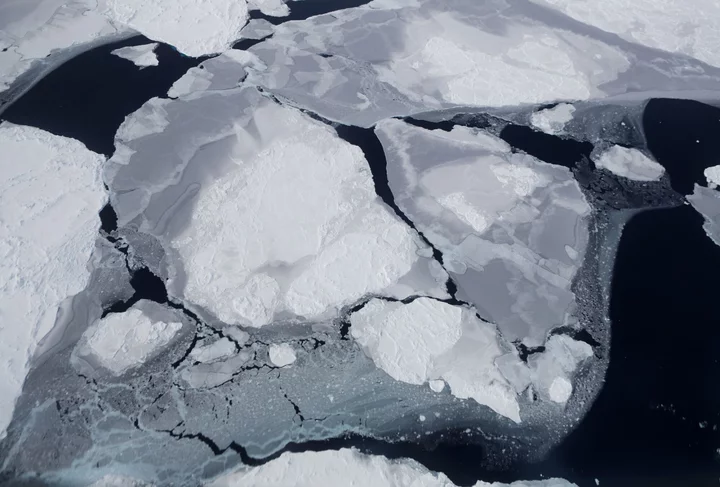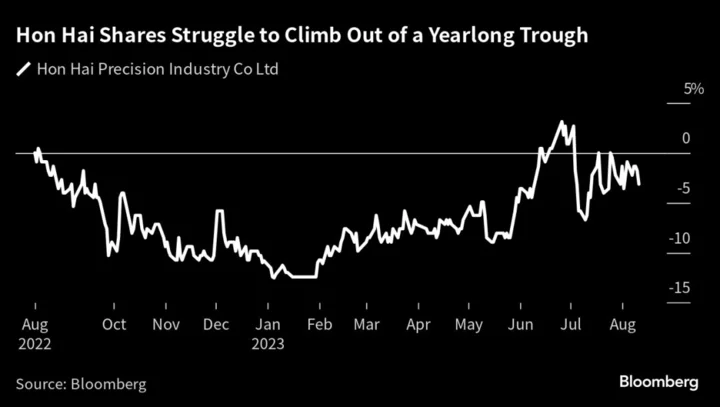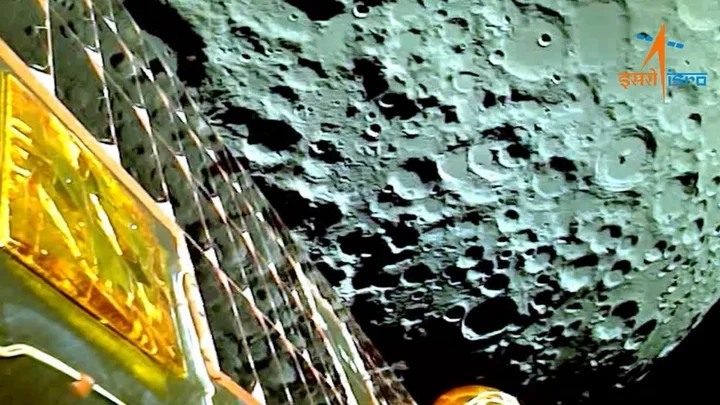The West Antarctic ice sheet is set to melt faster even if the world rapidly cuts emissions, according to a new study. That could lead to more significant sea level rise over the course of centuries.
The West Antarctic ice sheet holds 3.2 million cubic kilometers (767,000 cubic miles) of ice on land. Yet the area is the fastest melting part of the Antarctic, making it the continent’s largest contributor to sea level rise.
The new study, published on Monday in Nature Climate Change, provides a revised estimate of what the coming decades hold by looking at the risks different levels of global warming pose to the floating ice shelves. Those act as doorstops, holding back ice sheets on land. But an increasing body of research shows that hotter oceans are likely causing the ice shelves around West Antarctica to destabilize, raising the specter of massive sea level rise.
Researchers used a regional ocean model to simulate four potential global warming scenarios, ranging from a future characterized by high fossil fuel use to one limiting global temperature rise to 1.5C by 2100, one of the goals outlined in the Paris Agreement. In all the scenarios, warmer oceans caused significant and extensive ice shelf melting from below.
“Reducing greenhouse gasses had a negligible effect on preventing the melting from speeding up,” says Kaitlin Naughten, an oceanographer at the British Antarctic Survey and lead author of the study.
Without the shelves’ protection, more of the West Antarctic Ice Sheet is likely to tumble into the ocean. The associated rise in global sea levels will have devastating impacts, says Lettie Roach, an associate research scientist at Columbia University, who was not involved in the study. The ice sheet holds enough water to raise the global mean sea level by 5.3 meters (17.4 feet), according to the study.
“Studies show it could potentially flood hundreds of millions of people per year,” Roach says. “It would cause trillions of dollars of infrastructure damage and will have a huge impact on GDP.”
There are some caveats. The Antarctic climate is a complicated system that can’t always be comprehensively covered by modeling. “These things are really hard to represent. It’s such a complex region where you have the atmosphere, the ocean, the sea ice, the ice shelves, and the ice sheet” Roach says.
Scientists are still refining estimates on how fast the ice shelves will melt and how that in turn will impact ice on land. “It’s hard to know exactly how quickly it will respond, but we expect that the bulk of the ice sheet's response will take a few centuries. It doesn't respond instantly,” Naughten says.
The study’s findings don’t mean it’s time to throw in the towel on cutting emissions, even if the impacts of doing so may not immediately limit melting. After 2100, researchers expect the rate of melting to slow in more ambitious mitigation scenarios, allowing more time for the world to adapt to global sea level rise. Limiting greenhouse gas emissions now can also help control the melting of other ice sheets, including the larger East Antarctic ice sheet, which has the potential to cause 10 times as much sea level rise.
“There's so many other impacts of climate change, which we can still stop,” Naughten says. “We have to keep this in perspective.”









